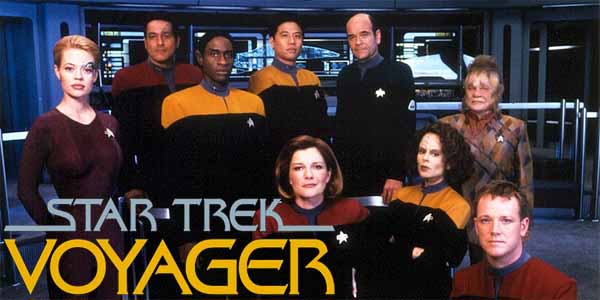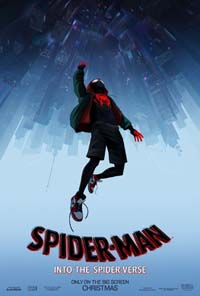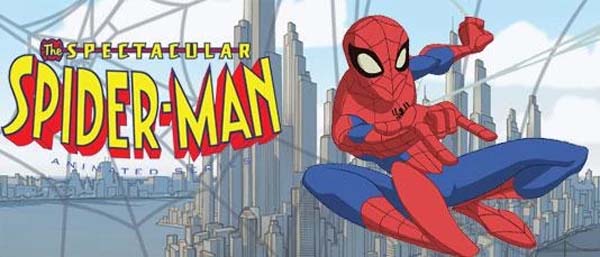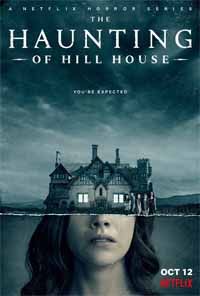
In my last post, I vented some of my frustrations with Star Trek: Voyager. Primarily, I ranted about how the series mostly failed to follow through with its central premise of being about the ship being lost and isolated on the other side of the galaxy. But I still have more complaints with Voyager. A side effect of the show not following its "lost and alone" premise to its logical conclusion, the show ended up feeling like it was trying too hard to be a Next Generation copy-cat.
Steve Shives also brought up this complaint in his Youtube video "What's My Problem With Voyager?", and I echo the criticism. Voyager had the frustrating habit of retelling stories that had already been told (usually better) in Next Generation. Star Trek shows have always repeated archetype characters, but TNG and Deep Space Nine were very good about paying homage to the earlier shows, without outright copying them.
Many characters feel like slight variations of characters from TOS and TNG.
For example, it could be argued that Data in TNG is a copy-cat of Spock. Dr. McCoy, after all, frequently referred to Spock as a "computer", and Mr. Data is [literally] a computer. But Data isn't a copy-cat of Spock. He's actually more a reflection of Spock (though, admittedly, Spock's arc in the movies and in "Unification" does paint him as being more similar to Data). Spock (in the Original Series) derided his humanity and fought very hard to subdue and quell it. Spock was like a Dr. Jekyll who thought his human half was the monstrous Mr. Hyde. Data, on the other hand, inverts this concept and is more of a Pinocchio (which Riker explicitly spells out for us in "Encounter At Farpoint").
Data wasn't a copy of Spock, he was an inverted reflection.
Also, Spock was dueling with his human half throughout the Original Series and into the movies. That's a dynamic that isn't present in Data at all. That dynamic is present, however, in Worf! Then, of course, there's the whiz kid element of Spock's character, which was transcribed onto Wesley in TNG. So TNG took inspiration from the Original Series' most popular character (Spock), but instead of copying him with minor variations, it split Spock's attributes into multiple characters.
[More]
2c5a81e1-f421-43b4-a73f-c4e9164e3c2a|0|.0
Tags:Star Trek, Star Trek: Voyager, U.S.S. Voyager, Star Trek: the Next Generation, Star Trek: Deep Space Nine, Delta Quadrant, Starfleet, Maquis, Kazon, Hirogen, Borg, Kathryn Janeway, Seven of Nine, The Doctor, Kes, Chakotay, Tuvok, Neelix, Tom Paris, B'Elanna Torres, Harry Kim, Borg Queen, Boothby, Reginald Barclay, Q, Data, Spock, Worf, Quark

A couple years ago, I wrote about the show that I wish Star Trek: Enterrpise had been. Enterprise completely dropped the ball as a prequel and as a bridge between our time and the time of the original Star Trek, by screwing up at fundamental levels of its conception and design. But Enterprise wasn't the first Star Trek series to do this. Its immediate predecessor, Star Trek: Voyager had already started this trend, which has sadly carried onto into all incarnations of Star Trek since.
I rarely talk much about the reasons that I think Voyager is an inferior show to Next Generation and Deep Space Nine. The closest I've come so far was my rant about the Borg, a brief retrospective as part of the 50th anniversary, and a few off-hand jabs at Voyager in some of my other Star Trek posts. This past summer, Steve Shives published a video on Youtube called "What's My Problem with Voyager?" in which he vents some of the same complaints that I have. Steve has some pretty excellent content on his channel, and I highly recommend checking him out if you enjoy my Star Trek content. Anyway, his video inspired me to vent some of my own frustrations with Voyager that he either didn't cover, or for which I feel I have additional insight.
Steve Shives, creator of "Trek, Actually", posted his problem with Voyager on Youtube.
Just like Steve, I want to start by stressing that I don't hate Star Trek: Voyager. I don't think it's as good as its predecessors, but it's perfectly watchable.
When I first started drafting this, it was going to be a short list of complaints. However, as I re-watched the show, the post ballooned with examples. As such, I'm going to split this into several parts. This first part will probably be the longest (so bear with me please) and will focus on what I perceive as a failure of Star Trek: Voyager to adequately build upon the foundations of its premise. The next post will be about how I perceive Voyager as a lazy copycat of The Next Generation.
At a conceptual level, Voyager begins with two foundational pillars: the ship is stranded on the opposite end of the galaxy; and a quarter of the crew has been replaced by Maquis freedom fighters and terrorists instead of trained Starfleet personnel. The show almost completely whiffs on both of these concepts. I would say that there are also two other foundational pillars of the show, but each of these only lasts for half the series. In the first half of the series, a major source of conflict is the fact that Voyager possesses technology far superior to the races and civilizations that it encounters; thus, bringing the Prime Directive into sharp focus and testing the crew's resolve to obey the Directive in such desperate circumstances. In the second half of the series, we have the Borg (which I will be discussing again).
Voyager is isolated and alone, without the resources of the Federation or a starbase.
All four of these are very strong concepts and well worth exploring. Unfortunately, Voyager almost completely abandons its two initial foundations, and (again) completely whifs when it comes to the Borg (though, admittedly, a big part of that is Star Trek: First Contact's fault). The only concept that Voyager really sticks the landing on is the idea of technological disparity between Voyager and its foes in the first couple seasons. [More]
f844da9a-60ad-4a3a-b28a-f06121578938|5|1.8
Tags:Star Trek, Star Trek: Voyager, Star Trek: Enterprise, U.S.S. Voyager, Delta Quadrant, Starfleet, Maquis, Kazon, Hirogen, Borg, Kathryn Janeway, Seven of Nine, Jeri Ryan, The Doctor, Kes, Chakotay, Tuvok, Neelix, Tom Paris, B'Elanna Torres, Harry Kim, Joe Carey, Lyndsay Ballard, Ensign Jetal, Borg Queen, Gilligan's Island, Prime Directive, Steve Shives
A couple weeks ago, I heaped praise upon the Spectacular Spider-Man TV show, saying that it "might be the best media adaptation of Spider-Man, period!". I still believe that holds true, but Sony's Into the Spider-Verse definitely gives Spectacular a run for its money.

Spider-Verse isn't really an adaptation of any of the Spider-Man comics. Not the original Amazing comics, or even the more recent Ultimate comics. It's a completely original story featuring the modern Ultimate Spider-Man, Miles Morales, the son of an hispanic nurse and a black cop in New York. So in that sense, Spectacular remains the most faithful adaptation of the original 60's and 70's, Stan Lee and Steve Ditko comics featuring Peter Parker. I was kind of hoping to see a Josh Keaton Spectacular cameo in this film, but no such luck. Damnit, Sony, bring back Spectacular Spider-Man! Make it happen!
I also said in the Spectacular review that Spider-Man (and perhaps all comic adaptations) are best-suited to television shows in which the long-form, character-driven storytelling of comics can be allowed to play out. Into The Spider-Verse, however, proves that Spider-Man (and perhaps all comic adaptations) also work much better in animation! The animation here is fantastic. The images are crisp and vibrant, and they really "pop" to the point that the movie almost looks 3-D without actually watching it in 3-D. The action is fluid and kinetic. The character designs and costumes are all interesting (especially Spider-Gwen, Doctor Octopus, and Prowler). Kingpin's massive, hunchbacked visage kind of stands out as odd, considering that all the other characters have somewhat realistic body proportions. Everything else, however, looks really good!
Seriously, this movie's visuals will blow you away. I'm talking, like, remember how you felt when Beauty and the Beast, The Lion King, and Toy Story came out. That's how good this movie looks.
Animation if crisp, vibrant, fluid, and kinetic.
Not only is it pretty to look at from a technical level, it's also ingeniously-imaginative. There's some reality-warping, dimension-hopping dreamscapes that put Doctor Strange and Inception to shame. Most of the action is semi-realistically drawn and animated, but certain action scenes go extra comic-bookey with brief still-images of comic-like panels, complete with sound effects and speech bubbles drawn on the screen. Peni Parker, Noir, and Spider-Pig all have their own distinct animation styles that blend in flawlessly with the rest. Peni and her robot mech are from a future Japan, and are drawn and animated in a distinctively anime style. Noir is drawn like penciled-in black-and-white. Spider-Pig is full-blown Merry Melodies cartoon.
... [More]
acbac695-9662-4545-b638-7e6155175600|0|.0
Tags:Spider-Man, Into the Spider-Verse, Sony/Columbia Pictures, animation, Peter Parker, Miles Morales, Gwen Stacy, Ultimate Spider-Man, Spider-Gwen, Spider-Man Noir, Peni Parker, Spider-Pig, May Parker, Kingpin, Prowler, parallel dimensions, time travel, Stan Lee, Steve Ditko, Logan

Pretty much any time I talk about Spider-Man on this blog, I use one of two points of reference. The first is the original comics themselves (the Silver Age comics of the 60's and 70's). The second point of reference is a short-lived children's cartoon from 2008 to 2009 called The Spectacular Spider-Man. Its first season aired on The CW network (part of Warner Bros. network), and the second season aired on Disney XD. The series was developed primarily by Greg Weisman and Victor Cook, and was produced by Sony.
Despite referring back to this series repeatedly, I've never actually written a review of it. Recently, however, I re-watched the series (by introducing it to my 8-year-old daughter and her friends), and thought maybe I should actually write a review of. Put simply, Spectacular Spider-Man is probably the single best adaptation of Spider-Man that has ever been put on a screen. It's not only the best Spidey animated series, but it might even be better than any of the Spider-Man movies, including Sam Raimi's movies and Marvel's recent Spider-Man: Homecoming.
Spectacular Spider-Man is a better adaptation than any of the Spider-Man movies.
High school drama for all audiences
The show is a children's cartoon and its high school setting is definitely targeting younger kids. But it is surprisingly well-planned, well-written, and well-executed for a children's cartoon, and the teenage drama suits Spider-Man exceptionally well. Any Spidey fan, regardless of age, should be able to enjoy this show.
On the surface, the series seems to take a lot of inspiration from the Ultimate Spider-Man line of comics. This was a little bit off-putting for me at first because I don't particularly care for the Ultimate Spider-Man storylines or aesthetics. However, Spectacular won me over by remaining very faithful to the original comics as well. Spectacular manages to take the best elements from every incarnation of Spider-Man, combines them, and modernizes them into a 21st century setting while delightfully capturing the spirit of the original 60's and 70's comics. Plot elements and themes are pulled from the original comics, from the Ultimate comics, and also (being produced by Sony) from the Sam Raimi movies. It even makes a few successful homages to the 1990's Spider-Man: the Animated Series that ran on Fox and had been, up till this point, the gold standard for Spidey on TV (at least, up until the last couple seasons go completely off the rails).
Spectacular takes the best elements from every incarnation of Spider-Man,
while remaining spectacularly faithful to the original 60's and 70's comics.
Spectacular even replicates some scenes straight from the panels of the comics. The infamous "Face it Tiger, you just hit the jackpot." scene is transferred verbatim. Other scenes such as Spider-Man removing the Venom symbiote in the church tower, and channeling the thoughts of his friends and loved ones to help him lift himself out from under collapsing metal beams are also faithfully replicated.
Spectacular [BOTTOM ROW] replicates panels from the original comics [TOP ROW] almost verbatim.
Other adaptations have also replicated (or paid homage to) specific comic book panels. For instance, The Animated Series of the 90's also had the "Face it Tiger, you just hit the jackpot!" scene, and the symbiote bell tower scene, and so forth, and many of its episodes are loosely based on issues of the comics. Homecoming had the "trapped under rubble" scene. Sam Raimi's Spider-Man movie had the Green Goblin being impaled by his glider. And so forth.
What separates Spectacular from these other adaptations is that Spectacular manages to maintain more of the nuance and texture of those original comic panels.
And it isn't just the faithfullness to the source material that I like. The show is also generally well-written, with some clever (and not-so-clever) uses of things like symbolism and foreshadowing. The characters are all well-written and well-performed. The animation may have exaggerated body proportions, but it's very fluid, expressive, and is full of nuances in facial expressions and body language. There are some parts of the show that have some cheesy dialogue that reminds me that it's a children's show, but overall, the show is immensely watchable by adults and children alike.
There's some quality writing, including foreshadowing, symbolism, and misdirection.
If I haven't made it clear already, this show is fantastic, and I absolutely adore it! The next section will contain minor spoilers, and the sections after that will contain major spoilers! So if you haven't seen the show yet, then I highly recommend that you buy the DVDs and watch it, then come back to finish reading the review. You can maybe get through the next section ("Friends and Lovers") without too much spoilers, but sections after that will be spoiling major story threads, including what I consider to be the single biggest spoiler in the entire series. Suffice it to say: I love what the show does with Gwen Stacy, I love what it does with Mary Jane, I love what it does with Harry Osborne, and I love the depictions of most of the villains! If you haven't watched the show yet, then read on at your own risk!
... [More]
cdd3eb5f-2851-4c3a-9d77-df4c1e5940c0|1|5.0
Tags:Spider-Man, Spectacular Spider-Man, Sony/Columbia Pictures, Disney, Marvel, Marvel Comics, Disney XD, DVD, television, cartoon, children, comic, comic book, Peter Parker, Gwen Stacy, Mary Jane Watson, Harry Osborn, Norman Osborn, Emily Osborn, Green Goblin, Eddie Brock, Venom, May Parker, Ben Parker, Josh Keaton, Lacy Chabert, Marina Sirtis, high school, teenager, death, Batman: the Animated Series, Spider-Man: the Animated Series, Ultimate Spider-Man

Oh boy, this is going to be a tough one to talk about. I have very mixed, and somewhat polarized views of how this turns out, and as such, I'm struggling with whether or not I can offer a recommendation. The first five or six episodes are fantastic! After that, however, I really feel like the show peters out, begins to meander and run in place, and then kind of unravels in the end. Those first five or six episodes are so good, however, that I think I can recommend the series as a whole based on the strengths of its first half.
I can't discuss this show without getting into spoilers, so be warned that the further down you read, the more spoiler-y this will become.
A masterfully suspenseful start
Each of the first five or six episodes is told from the point of view of a different sibling in a family that is tormented by a summer spent in a haunted house. This structure creates a deeply textured and nuanced tapestry, in which each episodes recasts the events of the previous episodes in a new light. Giving each character his or her own episode provides us with a rich character study that helps us to understand each character's attitude when they all get together and the family drama gets rolling. All the while, the subtle supernatural elements create a building sense of intrigue as the mysteries surrounding Hill House, and the family's last night there, continue to mount and the plot continues to thicken.
Each of the first six episodes is told from the perspective of a different character.
I really love the camera work! Slow pans and zooms are used with excellent effect to draw out scenes and add tension and keep the scene mysterious. Sometimes, there's a creepy detail in the background. Other times, there's an ominous lack of anything creepy to see as the camera slowly pans from character to character across a room or down a hallway. In any genre other than horror, these labored camera movements would seem wasteful and pointless, but they really add to the atmosphere here.
The set design is also really great. The gothic Hill House provides an excellent and ominous set piece, but the other sets are also uncanny and unnerving in their own right, especially Shirley's funeral home. Around episode 6 or 7, I was really starting to struggle with reconciling the geometry of Hill House, and this is something that is paid off really well at the end of the series.
The geometry of Hill House becomes a source of unease as the series develops.
A meandering, incoherent ending
Unfortunately, the series faltered a bit for me after the sixth episode. At this point, all the characters are together in one place, and so no one character receives the focus of the narrative. The story starts to meander a bit here, while also running in place, as the intrigue that was so carefully crafted in the preceding episodes is squandered, new plot points and concepts are thrown at the audience, and old plot points and concepts just disappear.
... [More]
|

| 12 | | | | | | | 60 | | 11 | | | | | | | 55 | | 10 | | | | | | | 50 | | 09 | | | | | | | 45 | | 08 | | | | | | | 40 | | 07 | | | | | | | 35 | | 06 | | | | | | | 30 | | 05 | | | | | | | 25 | | 04 | | | | | | | 20 | | 03 | | | | | | | 15 | | 02 | | | | | | | 10 | | 01 | | | | | | | 05 |
|